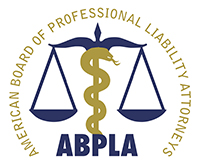
Can You Sue for Diagnostic Errors?
Receiving an incorrect diagnosis can have severe consequences; and in some cases, you may wonder if you can sue for diagnostic errors. Whether you get sent home without a diagnosis or your doctor diagnoses you with a condition you do not have, the results can be devastating—and they can even be fatal in some cases.
Diagnostic errors can also lead to substantial costs. By the time you go back to the doctor and obtain an accurate diagnosis, your condition could be far worse than it was when you originally sought treatment. Your medical bills will add up quickly, and you may incur various other financial and non-financial costs as well.
The knowledgeable attorneys at Mandell, Boisclair & Mandell, Ltd. have a proven record of success in a range of matters involving medical negligence. If you or a loved one suffered at the hands of a doctor, nurse, or another medical professional, we may be able to help you pursue damages for your physical, financial, and emotional losses.
Misdiagnosis Is a Common Form of Medical Malpractice
If you are wondering whether you can sue for a diagnostic error, you are not alone. Misdiagnoses are alarmingly common. According to the American Academy of Family Physicians (AAFP), “Slightly more than one out of three cases of medical malpractice that result in death or permanent disability can be linked to inaccurate or delayed diagnosis.”
As this quote from the AAFP suggests, misdiagnoses will constitute medical malpractice in many cases. When diagnostic errors rise to the level of medical malpractice, patients can sue for compensation. Doctors have a duty to provide their patients with adequate care, and failing to accurately diagnose a patient’s condition is a fundamental error that doctors can—and should—generally avoid.
Understanding the Costs of Diagnostic Errors
The costs of a specific diagnostic error will depend on the nature of the error, the patient’s condition, and various other factors. For example, while failure to diagnose (and the resulting lack of treatment) can cause long-term harm, diagnosing a patient with the wrong condition can have even greater consequences. As Johns Hopkins Medicine explains:
“The ensuing harm [from a diagnostic error] results from the delay or failure to treat a condition present when the working diagnosis was wrong or unknown, or from treatment provided for a condition not actually present.”
Oftentimes, treating a patient for a condition he or she does not have can be just as dangerous as, if not more dangerous than, sending a patient home without any diagnosis at all.
As noted above, once a patient receives an incorrect diagnosis, his or her bills can quickly begin to mount. Common costs, harms and losses associated with diagnostic errors—which patients and their families can recover by filing medical malpractice claims—include:
- The cost of correctly diagnosing the patient’s condition
- The cost of treating the patient’s condition
- The cost of remedying any negative effects of unnecessary treatment
- Prescription medications, medical supplies, and other out-of-pocket expenses
- Loss of current and future earnings
- Pain and suffering, loss of consortium, and loss of enjoyment of life
- The harm resulting from injuries and possibly death due to the misdiagnosis or delayed diagnosis.
What To Do if Your Doctor Made a Diagnostic Error
If your doctor (or your loved one’s doctor) has made a diagnostic error, there are some important steps you will need to take to maximize your chances of recovering these losses. To protect your legal rights, you should:
1. Obtain an Accurate Diagnosis and Begin Treatment
Any time you have concerns about your health (or a loved one’s health), obtaining treatment should be your top priority. If you have not done so already, you should go to a different doctor to obtain an accurate diagnosis and begin treatment as soon as possible.
2. Collect Your Medical Records
To evaluate your claim for medical malpractice, your attorney will need to review your medical records. While your lawyer can request these records from your healthcare provider if necessary, you should bring them with you to your free initial consultation if you have them.
3. Take Detailed Notes
In addition to collecting your medical records, it is also a good idea to take detailed notes. When was the last time you saw the doctor who made the diagnostic error? When did you start to suspect that your doctor made a mistake? What did your new doctor say about your prior doctor’s diagnosis (if anything)? The more information you can provide your medical malpractice attorney, the better.
4. Consult with a Medical Malpractice Attorney
If you have any concerns about possible medical malpractice, we strongly encourage you to speak with an attorney. It costs nothing to learn about your legal rights; and, if you have a claim, an experienced medical malpractice lawyer may be able to help you recover significant financial compensation.
Talk To a Rhode Island Medical Malpractice Lawyer for FREE
Did your doctor (or your loved one’s doctor) make a diagnostic mistake? If so, a Rhode Island medical malpractice lawyer at Mandell, Boisclair & Mandell, Ltd. can help you understand your legal rights and take appropriate legal action on your behalf.
See what our clients say about us.
For a FREE, no-obligation consultation, call (401) 273-8330 or request an appointment online today.





























